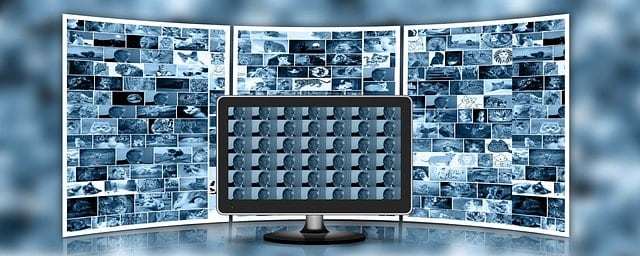The technical advancements are all about experimenting with machines and making them more human, where the collaborative efforts of both man and machines are deriving results beyond expectations.
Next to the invention of the Microchip, Artificial Intelligence(AI) and Machine Learning(ML) are considered to be the biggest technological innovation. From a fanciful science fiction concept, AI is now the reality of this digital world.
With AI came ML and imitating the real neurons; Deep Learning brings the study of neural networks, giving machine learning a great breakthrough. It’s the era of digital revolutions where the focus is merely on harnessing mental and cognitive abilities.
And the day is not far when automated devices and programs will not only replace ‘manual labor’ but also the ‘mental labor’ that only a human performs today.

People looking at such advancements raise their brows in surprise and imagine how these technologies work and run. I would say that technology lovers seeking to gain deeper insights about the latest advancements must undergo a Machine Learning Course, which will drive you away with the digital benefits they provide to the world.
Machine Learning Changing the Professional World
The implications and contribution of ML in different working spheres are considered miraculous by some, but for the opponents, it’s no less than a catastrophe. Depending upon the degree of difficulty, the machine learning concept has a tremendous potential to automate a large portion of skilled labor.
How? Take a look below at the industries, professionals, and workforce experiencing the evolutions brought by the modern techniques:
1. Healthcare
Faster patient diagnosis, prevention of major illnesses, and prediction of potential health diseases show how ML is stretching its arms in improving our lifestyle by playing a bigger part in our health. Further, all these are made possible using machine learning techniques to consider a person’s demographics ( age, genetic history, illness stage, symptoms, etc.).
Hospitals are currently using AI algorithms to detect diseases in radiology scans and are also busy identifying and researching ways to cure the Big Cancer.
2. Law
Data is growing exponentially where no industry lags in generating massive structured and unstructured data forms.
Legal firms, too, produce crucial and sensitive information related to legal precedents, and to process such types of records, they look upon ML to sort data at breakneck speed.
Yes, legal teams take 360000 hours to review the documents and cases; a J.P. Morgan software takes seconds to do that job with the help of COIN (Contract Intelligence).
COIN runs on a machine learning system powered by a private cloud network shortening the time of process executions, thus delivering semantic outcomes with the least possibility of errors.
For now, machine learning is not replacing lawyers and advocates with its powerful concepts. However, its incorporation reduces the time to put a case together and helps expedite trials and other law processes.
3. Transport
It’s not wrong to say that the transport industry is steadily relying on artificial intelligence and machine learning, where Google’s driverless cars have taken the job of drivers.
Moreover, NASA making the best use of machine learning, has launched its ever-unique autonomous space shuttle, which will also carry passengers for space exploration in the future.
Very soon in the coming decade, the technology will be seen covering the rail and shipping networks where the efforts made by Google and Rolls Royce will come into action in 2020. The two overlords, with their sheer association, have planned to design and launch the world’s first and ever-imagined self-driving ship, effectively using Google’s Cloud Machine Learning Engine to track and identify the sea objects and hurdles coming across.
4. Banking
With the increasing numbers of bank accounts and the ever-growing count of cardholders (credit/debit) do you think the transactions made by the masses can be easily handled by human hands?
The transactional risks increase with these budding numbers where it would be too late to handle an anomaly with only human intervention.
Using location-based data and purchase patterns, AI-enabled anomaly detection models help banks to identify and examine fraudulent behavior at the time of its occurrence. The real-time data enables us to determine the real-time deceitful circumstances by monitoring transaction requests and the transaction’s trail.
Therefore, in dealing with privacy and authentication, the big innovations prove to be highly efficient and essential, whereas today, cybercrime is at its apex.
Machine Learning Affecting Home Life
Amazon’s Echo and, Alexa, AlterEgo are efficient examples of AI and ML that have enhanced how we communicate and live our daily lives.
The AlterEgo headset is a mind-reading technology that responds to the brainwaves to execute the orders of a user for controlling domestic appliances. This is something no one imagined that while driving back to your home, making a few commands on the way can make your home warm and cozy before you reach (by directing the thermostat of these smart machines.)
Echo and Alexa also help automate your domestic lives by allowing voice-activated device control features which handle internet-enabled smart home appliances running AI and ML algorithms at the rear end.
Taking a close look at the future, you will realize that the future is no more imaginary as things fantasized and imagined are turning into reality giving humans ease of comfort to live life smoothly and in a luxurious way.





